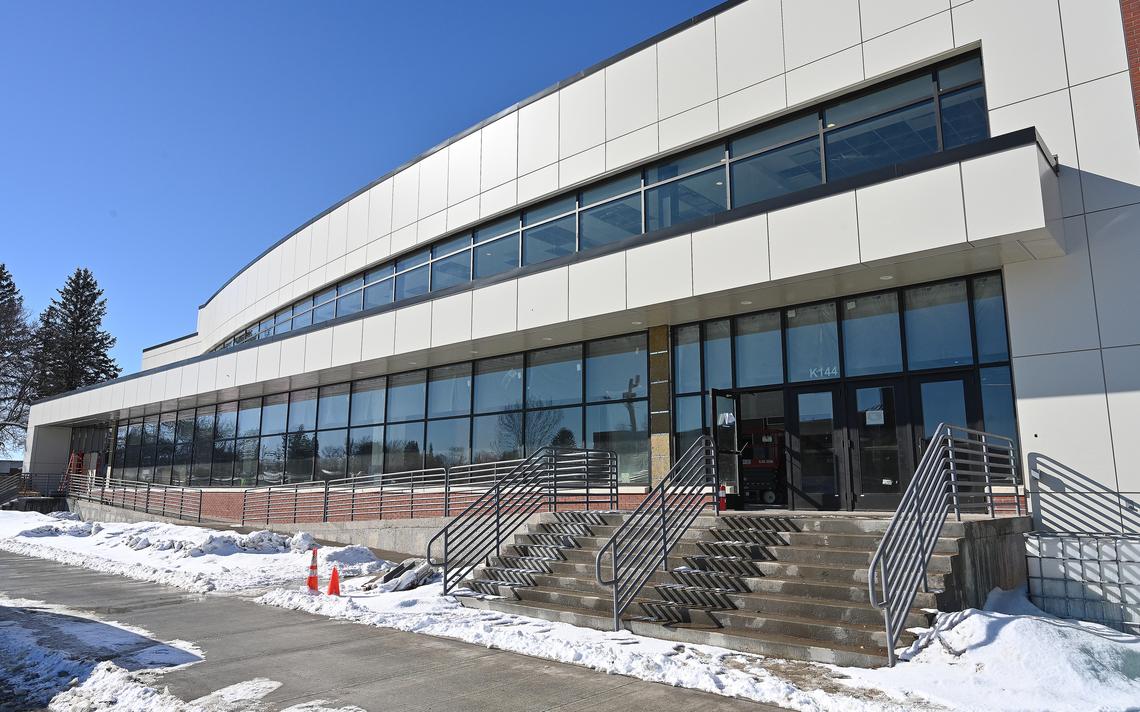The Power of a Name
It happened! After twenty-some years, area voters passed a referendum permitting the high school expansion to begin. Properties were purchased, existing houses were demolished pushing parking lots northward, thus opening space for the addition. Two city blocks filled with construction materials, machinery, and work crews. The occasional orange cones directed traffic out of harm’s way. But, how would classes proceed with such clatter and disruption?
COVID hit making that a non-issue. Students and teachers were relegated into laptop classrooms in their own homes. Not so for the construction teams. With their hard hats and masks, beams rose, plastic tubing ran through walls, cement poured, and nails took their places. The addition appeared amidst the pandemic, winter winds, and shifts in supply chains. This spring, it needs. . . A NAME!
In January 2021, the Brainerd Dispatch invited the community to participate in christening the latest District 181 expansion. Please note I now include names to this story. Naming matters. You know the town, the newspaper, and the school district’s identity. You can check a map, google the article for details, and explore Brainerd’s history, if desired. What do names tell us
The Brainerd Dispatch opened an online voting option along with a comment area to explain one’s choice. Only two perimeters regulated the entries:
- No person’s name accepted
- The name must identify the area; be a recognizable location.
A committee was formed to narrow the choices and send them on to the School Board for final selection and approval.
I knew nothing of this until Pat contacted me in January. “What do you think?” she texted.
As a language and cultures teacher, my heart went right to Ojibwe. By choosing an Ojibwe word, we’d recognize this first culture, language and peoples. Naming is sacred. It foretells the future hope and potential. By including an Ojibwe word, there is history, the depth of art, music, tradition, cuisine, and finally, recognizing diverse ethnicities. Not just one culture, but all future incoming cultures.
Since the high school is located on the banks of the Mississippi, I googled the Ojibwe word and found two spellings: Gichi-ziibi and Mizi Ziibi. I listened to the native speaker’s pronunciation. It was close to English. Of course! It was the origin word, likely a mispronunciation by non-native speakers. I entered it online with my comments on culture, diversity, and inclusion.
Next, the wait. Time passed. On February 21st, I decided to investigate. Oh my, no! The next very next day was the School Board meeting and the moment to decide a name from three choices put forth by the committee:
- Brainerd Lakes Area Center for the Arts
- Brainerd Lakes Center for the Performing Arts
- Brainerd Lakes Area Center for the Performing Arts
My heart literally sank. Really? Is that the best, strongest, attention-getting name possible? No offense to the committee, nor the folks that entered those ideas, but the one-dimensional blandness horrified me. Yes, horrified. What a missed opportunity to break out and lead.
I emailed Mary Sam, Dean of Diversity at Central Lakes College, and Charles Black Lance, Director of Central Lakes College TRIO program and member of District #181 School Board.
Note the importance of input from those in the culture-language group out of respect and accuracy. I got an approving nod. Time to show up at the meeting.
Wearing my Frida Kahlo mask, carrying the shoulder bag designed by Ojibwe author/ bead worker, Cheryl Minnema, colored by my granddaughter, I stood up and greeted the assembled in Spanish. I had three minutes to make my case. My recommendation:
Brainerd Mizi Ziibi Cultural Center
Brainerd: Recognizable geographical location. The town was named by the president of the Northern Pacific Railroad, John Gregory Smith, in 1881, using his wife’s maiden name, Brainerd. History and recognizable location.
Mizi Ziibi: The school is located on the banks of the Mississippi, a word taken from the Ojibwe language, encompassing the culture, history, and origin people of the region. (Past and present)
Cultural: Culture includes Arts and Music/ Performing, but goes beyond. Culture encompasses languages, traditions, cuisine, fashion, and mores. (Past, present and future)
Center: Gathering place. The sacred circle. No one is at the head of the table. Room for more, clasping hands. Diversity welcome.
I went home.
To my surprise, joy and amazement, the morning paper announced the postponement of naming the auditorium! More input, more diversity, more cultural ideas would be welcomed. The new deadline is in the fall.
I dare hope that this naming will include an Ojibwe word, embracing another culture, tasting a new word on our tongues, opening minds and eyes to a wider world. How exciting to dream of diversity by sharing music, art, dances, traditional clothing and of course. . . Food!
A gathering center, now and into an expanding future.
Naming. A sacred ritual. Make it strong. Bring us together.
Mii Gwetch, Merci, Gracias, Danke, Tak, Efcharisto, Mahadsanid . . .
Thank you.


Love your idea! I was thinking the same way but never submitted my idea. The first settlers had wanted the name of “Ocamacua” Indian word for “The Crossing” as noted in 1971. Information I gathered while reading some old Brainerd HIstorical Society newspapers. It also said that on the banks of the Mississippi, near Boom Lake, (which is right here where Brainerd High School property is located), the village started with sawmills and lumbering! The dense pine forest served the Chippewa as hunting grounds and blueberry fields.
Lots of ideas for names pop out of this information! Hope they come up with something creative!
Opps, The settlement along the banks of the Mississippi was called Ocamacua or The Crossing before it was named Brainerd.